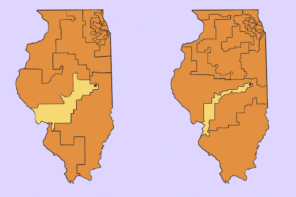Perhaps it’s appropriate that I was in Cairo on the weekend of the 10th anniversary of the 9/11 attacks, since I may well have been at the place where 10 years of the War on Terror came to an end.
It began at Ground Zero in New York City on September 11, 2001, and likely terminated at Tahrir Square in Egypt on January 25, 2011. Even this past weekend when I was there, tens of thousands crowded the huge traffic circle waving flags and patriotic banners. Now, however, they aren’t calling for the fall of a dictator, but for government to be true to its promise of free and fair elections. The excitement over the democratic changes in the country is palpable.
The main reason for this particular protest is the fear that the military government is rigging the elections in advance, or worse, that it might delay them indefinitely. (Later that evening, after the protest, a smaller group attacked the Israeli Embassy some distance away; as far as I could tell these attacks were unrelated, belying the media reports that the “protests had turned violent”).
The next day I visited the offices of the Grand Mufti of Egypt, the highest Muslim clerical position in the country, who told me that he is optimistic about the future. Though he is no friend of the Muslim Brotherhood—Muslim radicals in Egypt, as elsewhere in the Middle East, defy the clergy and claim religious authority on their own—the Mufti believes the religious activists will play a positive role in the new government, and that the days of religious violence in Egypt are over.
Later I met with an old friend, one of Egypt’s leading sociologists and human rights activists, Saad Eddin Ibrahim, who had been imprisoned by Mubarak’s regime. After his release he was threatened with new charges, which led him on a self-imposed exile for several years. When he returned, he met with some of his old cellmates, also released, in a sort of reunion; most were jihadi activists imprisoned on terrorism charges. They came to Ibrahim seeking his advice on how they might get involved in electoral politics in the new Egypt. They had no interest in going back to the old ways.
Clearly the strident message of al Qaeda and the global jihadi movement is, as far as Egypt is concerned, a thing of the past. The old activists are organizing political parties, and the young firebrands are gathering in nonviolent protest. No one seems to be building terrorist bombs any more.
This does not mean, however, that religious politics has disappeared. Just that it’s changing.
The Muslim Brotherhood is the most visible sign of a possible role for religion in Egypt’s new political landscape. There are, however, several factions within the Brotherhood, and serious divisions on strategy. The old guard does not want to form a political party, for example, but the new Freedom and Justice Party is largely made up of independent Muslim Brotherhood members, and younger Brothers have sought to form other political parties. There is also an indication that the current military rulers are forming alliances with old Muslim Brotherhood leaders in an attempt to provide popular legitimacy to the regime and to insure the Brotherhood’s electoral success. It’s worth noting that the rally I attended last weekend was focused on criticisms of the military regime, and that the Muslim Brotherhood pointedly boycotted the protests.
Assuming that religious politics will play a significant role in the new government after the elections, what will that look like? I see several possibilities:
One is the extreme position, a worst-case scenario of Egyptian politics devolving into a kind of Iranian Ayatollah state, or even worse: an Egyptian version of the Taliban. But this scenario is quite unlikely for several reasons. First, the Muslim Brotherhood has already been involved in parliamentary politics in Egypt in independent seats, and their positions have been fairly reasonable. Second, the parliamentary structure that will require them to come into coalition with other groups in order to achieve legislation will provide a check on their religious aspirations. There are few reasons to worry, therefore, that the January revolution will be “hijacked,” as the most worried observers fear.
A happier outcome would be the moderate religious position, one in which the party holds to religious values but governs like most other political parties regarding practical matters. This is largely how the Hindu nationalist party, the Bharatiya Janata Party (BJP), behaved when they came to power in the national parliament from 1998 to 2004 in India. Though they did attempt to revise classroom textbooks and privilege the protection of Hindu shrines, for the most part they behaved as most other secular political parties behave when they come to power and are confronted with practical policy choices. In Turkey, the Islamic-leaning AKP (Justice and Development Party) has also been a more reasonable political force than initially feared, once it came into a position of political power.
Perhaps a more likely outcome, however, is gridlock between strident religious parties and moderate secular parties. This is a case in which the religious parties refuse to accept the legitimacy of the secular leaders, and the secular parties regard the religious activists as unruly and undemocratic. This is the situation that vexes Pakistan’s political life (and to some extent it is the problem that confronts President Barack Obama with the Tea Party Republicans supported by the Christian Right in the United States).
But even the Pakistan scenario is a positive direction for a country like Egypt with such a violent and divisive political past. Even gridlock between extreme elements that nonetheless agree to participate in a democratic electoral system is an advance over the savage civil war between a secular dictator and religious terrorists. In this sense even a tumultuous Tahrir Square is much better than the heartbreak of Ground Zero.




